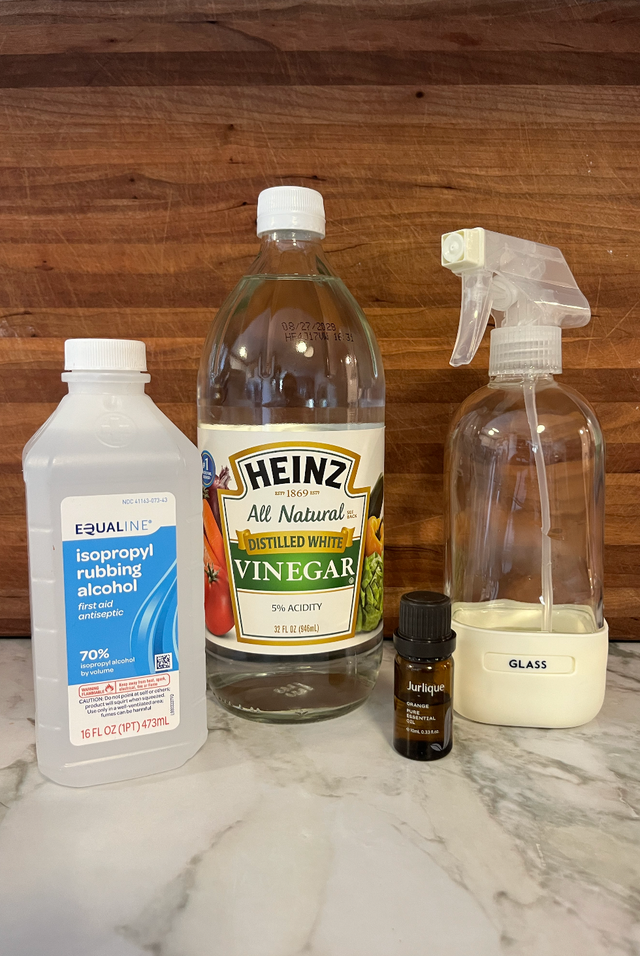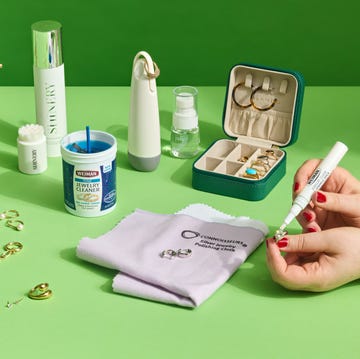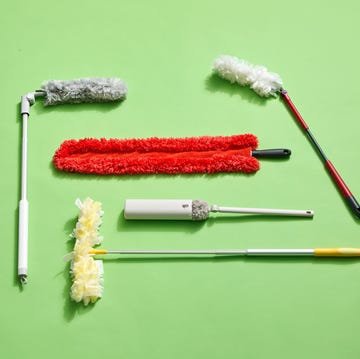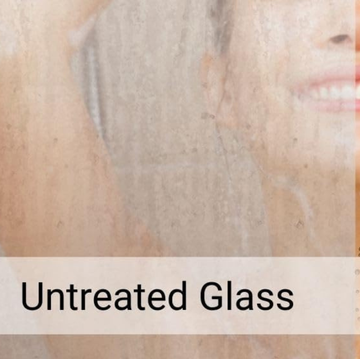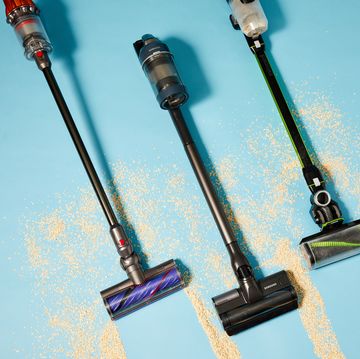When you use the right ingredients, homemade cleaning sprays can tackle stains, spills, greasy fingerprints and bad odors throughout the house. Not to mention, they're easy to make, cost-effective and tend to be more eco-friendly than store-bought cleaning supplies. In an effort to stop buying expensive household products, I checked in with our experts at the Good Housekeeping Institute's Home Care & Cleaning Lab for DIY cleaners that actually work.
It only takes a few minutes to fill a reusable spray bottle with these cleaning solutions, and you probably have most of the ingredients — like vinegar, essential oils, rubbing alcohol and dish soap — at home. From all-purpose cleaners to window cleaners and natural stone cleaners, we've rounded up the best homemade cleaning sprays for nearly every surface in your home.
Important safety tip: Always label any bottles of DIY cleaners with all the ingredients inside. It's important to know what the mixture contains in case a child or animal gets into it.
1. All-Purpose Cleaner With Dish Soap
What you'll need:
- ¼ teaspoon dish soap
- One cup water
- Optional: 4-6 drops of essential oil
This effective cleaning spray can be used to remove greasy fingerprints off painted walls, as well as spots and smudges on stainless steel appliances, countertops and the inside of your fridge. When used with a microfiber cloth, this cleaner can clear dust from baseboards, window sills and more — but avoid using dish soap on wood surfaces.
Combine water and liquid dish soap into a spray bottle, along with a 4-6 drops of your favorite essential oil, and shake up the solution. If you skip the essential oil, this cleaner can tackle stains on carpets. Spritz the solution onto a microfiber cloth and dab the stain. Once the stain is removed, fill another spray bottle with clean water and spray the area to rinse the soap. Blot well.
2. Scented All-Purpose Cleaner
What you'll need:
- One part white vinegar
- One part water
- Lemon rind of one lemon
- 2-3 rosemary sprigs
Combine equal parts white vinegar and water, the rind of one lemon and at least two rosemary sprigs into a spray bottle, shake. For best results, allow the mixture to infuse for a week before using. (For a different scent, you can also try orange rinds, cloves or cinnamon sticks). Use the homemade all-purpose cleaner to remove hard water stains, clean trash cans, wipe away wall smudges and much more. Besides a fresh scent, the lemon rind can help boost cleaning power.
Caution: Do not use acidic cleaners on granite, as they will etch the stone and proceed cautiously on stainless steel. Some manufacturers recommend against using vinegar on their appliance surfaces.
3. DIY Glass Cleaner
What you'll need:
- 2 cups water
- 1/2 cup white vinegar or apple cider vinegar
- 1/4 cup rubbing alcohol 70% concentration
- Optional: 1 to 5 drops of orange essential oil
This homemade cleaner will leave your windows and mirrors sparkling. Not only does the vinegar do a great job cleaning dust, pollen and dirt, the rubbing alcohol helps it evaporate quickly to minimize spots and streaks.
Combine 2 cups water, 1/2 cup white vinegar or apple cider vinegar and 1/4 cup rubbing alcohol into a reusable spray bottle. (If your bottle is small, you can half these measurements. Hint: 2 tablespoons is equal to 1/8 cup). Add a few drops of your favorite essential oil (we suggest a citrus scent), then shake.
Hint: Avoid cleaning windows on a hot, sunny day or in direct sunlight, because the solution will dry too quickly and leave lots of streaks. For cleaning mirrors, spray the solution on a soft cloth before wiping.
4. Natural Stone Cleaner
What you'll need:
- ¼ cup rubbing alcohol
- ¾ cup water
- 1 teaspoon dish soap
- Optional: Up to 10 drops of essential oil
Kitchen countertops, bathroom tiles, marble flooring and other stone surfaces require frequent cleaning — but cleaners with harsh chemicals or acidic ingredients, like lemon and vinegar, can break down natural stone. To create this natural stone cleaner, combine ¼ cup rubbing alcohol, ¾ cup water, a teaspoon of dish soap and a few drops of essential oil and shake. Spray and wipe stone surfaces with a microfiber cloth.
Are homemade cleaners effective?
Homemade cleaners can be just as effective as store-bought cleaners. The effectiveness may vary based on the cleaning task. Depending on how dirty the surface is, scrubbing a bit more or doing a second application might be necessary. If you find that your homemade cleaner is not doing a good job cleaning, it may be time to switch to a commercial cleaner.
Keep in mind: Not every homemade cleaner is suitable for every surface (there are things you should never clean with all-purpose cleaner). It's always best to try any cleaner — homemade or not — on a hidden spot to see if it's safe for the surface, especially if you are using it for the first time. And for safety, make sure to label any bottle or container of homemade cleaner properly, including the ingredients it contains.
What supplies do you need?
You might want to invest in a few glass bottles to store your homemade cleaning sprays. They're easy to clean and refill (personally, I love Grove's refillable spray bottle, because there's a built-in labeling system). If you don't have one already, a plastic funnel will help you easily fill the spray bottles.
Meet the Expert
Carolyn Forté is the executive director of the Good Housekeeping Institute Home Care & Cleaning Lab, where she has worked for 40 years. Previously, she was a textiles analyst for Montgomery Ward and she has a B.A. in Family & Consumer Sciences from Queens College, City University of New York.
Alyssa Gautieri (she/her) is the associate lifestyle editor for Good Housekeeping, where she covers all things home and interior design. Prior to joining GH in 2022, she wrote for publications including ELLE Decor, Chairish, BobVila.com, Unique Homes Magazine and LODGING Magazine, in addition to crafting product copy for home brands like BrylaneHome and VIGO Industries.
Carolyn Forté brings more than 40 years of experience as a consumer products expert to her role as executive director of the Good Housekeeping Institute's Home Care and Cleaning Lab. Using deep analytical testing and writing expertise in appliances, cleaning, textiles and organizational products, she produces cleaning and home care advice for GH, has authored numerous books and bookazines for the brand and partners with the American Cleaning Institute to co-produce the Discover Cleaning Summits. She holds a bachelor's degree in family and consumer sciences from Queens College, City University of New York.



